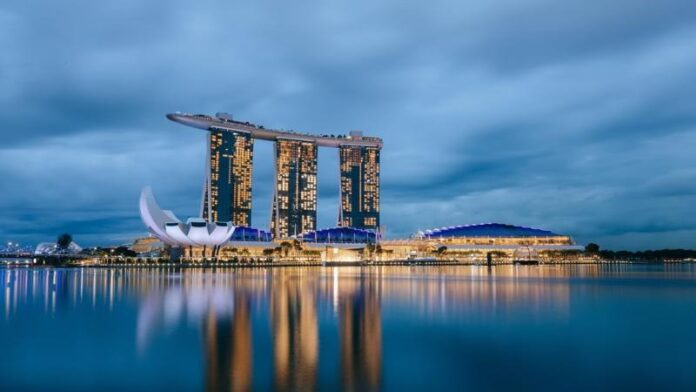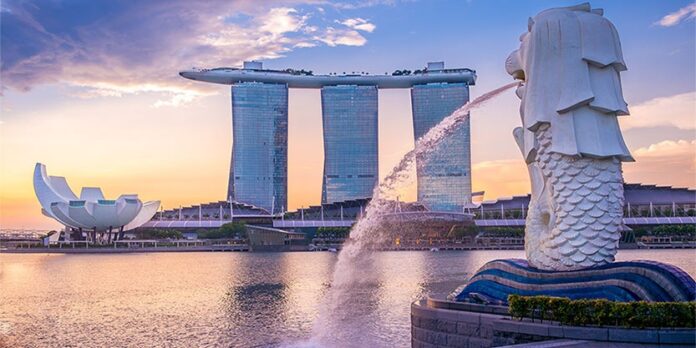In 2024, Singapore’s public housing resale market experienced a significant surge, with prices increasing by 9.6%, nearly doubling the 4.9% rise observed in 2023.
This sharp uptick stemmed from robust demand coupled with limited supply, leading to an 8% increase in resale transactions compared to the previous year.
The government’s attempt to cool the market by reducing the borrowing limit from 80% to 75% of a flat’s valuation in August had minimal impact.
Notably, the phenomenon of resale flats fetching over S$1 million ($735,000) has become increasingly common, reflecting the high demand for prime properties.
The government has advised prudence among buyers, urging them to consider their long-term financial commitments carefully.
Key Considerations for Investors:
- Market Dynamics: Understand the factors driving price increases, such as demand-supply imbalances and policy interventions.
- Financial Planning: Assess affordability and long-term financial commitments before purchasing.
- Government Policies: Stay informed about regulatory measures that could impact the housing market.
Private Property Price Index: Modest Growth Ahead


The private property price index (PPI) is projected to increase by 1 to 2 percent in 2025, aligning with inflation expectations.
This suggests a stabilizing market, offering a more predictable environment for investors. However, economic uncertainties and demographic shifts could influence future property prices, indicating a more complex market landscape.
Recommendations for Investors:
- Diversify Investments: Consider a mix of property types and locations to mitigate risks.
- Monitor Economic Indicators: Keep an eye on factors like GDP growth, employment rates, and demographic trends.
- Engage Local Experts: Consult with real estate professionals to navigate the market effectively.
Additional Buyer’s Stamp Duty (ABSD): A Heavy Toll on Foreign Buyers
Foreign investors face a substantial financial consideration in the form of the Additional Buyer’s Stamp Duty (ABSD). The ABSD for non-residents now stands at a staggering 60%, up from 30% previously.
This hefty tax aims to cool the market and deter speculative buying. Before signing any dotted lines, factor this into your budget.
Pro Tips:
- Comprehensive Financial Planning: Incorporate ABSD into your investment calculations to assess true costs.
- Explore Alternative Investments: Consider other property markets with more favorable tax regimes.
- Seek Professional Advice: Engage with tax advisors to understand potential exemptions or reliefs.
Central Core Region (CCR): A Potential Comeback


The Central Core Region (CCR), encompassing prime districts such as Orchard Road and Marina Bay, faced a slowdown due to the ABSD hike. However, 2025 might witness a resurgence.
New luxury developments, such as Marina View and a 680-unit project on Holland Drive, are on the horizon. With a narrowed price gap between CCR and Rest of Central Region (RCR) properties, savvy investors could find lucrative opportunities here.
Key Benefits of Investing in CCR:
- Prestigious Locations: Access to prime areas with high rental demand.
- Potential for Capital Appreciation: Properties in CCR have historically shown strong value growth.
- Enhanced Connectivity: Proximity to business districts and amenities increases property desirability.
Interest Rates: The Unpredictable Variable
Mortgage interest rates have been a rollercoaster lately. While lower rates in 2024 spurred buying, the future remains uncertain. Keep an eye on global economic indicators and central bank policies, as they will influence borrowing costs and, consequently, property demand.
Practical Examples:
- Scenario A: If interest rates rise by 1%, monthly mortgage payments could increase significantly, affecting affordability.
- Scenario B: Conversely, a 1% decrease in rates could make larger loans more accessible, stimulating demand.
A Glimpse into Modern Luxury


For those seeking upscale investments, The Continuum offers a compelling proposition. This freehold condominium, located at Thiam Siew Avenue, bridges urban convenience with tranquil living.
Developed by Hoi Hup Realty and Sunway Developments, it features meticulously crafted units ranging from one-bedroom plus study to five-bedroom layouts.
Amenities include swimming pools, communal facilities, and even a conserved bungalow, blending heritage with modernity.
Its strategic location provides easy access to shopping districts, reputable schools, and major expressways, making it a prime choice for discerning investors.
Highlights of The Continuum:
- Diverse Unit Options: Catering to various family sizes and investment goals.
- Luxurious Amenities: Enhancing lifestyle quality and property value.
- Prime Location: Ensuring connectivity and convenience for residents.
Navigating the Regulatory Landscape
Singapore maintains an open foreign investment regime, with no general restrictions on foreign investments.
However, certain sectors, such as finance, postal, and telecommunication, may require prior approval from relevant government authorities for foreign investors to acquire shares beyond a specified percentage.
Additionally, foreigners can purchase private condominiums and apartments freely but need approval from the Singapore Land Authority (SLA) to buy landed properties.
Navigating the Regulatory Landscape (Continued)
- Consult Regulatory Authorities: Engage with the Monetary Authority of Singapore (MAS) for sector-specific investment regulations and the Singapore Land Authority (SLA) for real estate approvals.
- Understand Ownership Restrictions: Foreigners can purchase condominiums freely, but landed properties require special approval.
- Stay Updated on Policy Changes: Government regulations on foreign ownership, taxes, and zoning laws can shift, impacting investment viability.
- Work with Local Legal Experts: Hiring a property lawyer ensures compliance with laws and helps navigate complex paperwork.
Upcoming Developments: Opportunities on the Horizon


Singapore is expanding its urban landscape with ambitious projects that will reshape the real estate sector. Investors should track these developments to identify emerging opportunities.
- Mount Pleasant: A massive housing project with around 5,000 HDB flats on the Old Police Academy site. The first Build-to-Order (BTO) project is set to launch in 2025.
- Long Island: A potential game-changer—this proposed reclaimed island along East Coast could feature residential areas integrated with coastal parks and recreational facilities.
- Jurong Lake District (JLD): A 120-hectare mixed-use district that includes residential units, commercial hubs, and the upcoming Jurong Lake District MRT station.
Why These Developments Matter
- New Housing Supply: More public and private homes will be available, possibly balancing price pressures.
- Investment Potential: Areas with new MRT lines and commercial zones often experience price appreciation.
- Diversification Opportunities: Investors can explore new neighborhoods rather than traditional prime districts.
Economic Outlook: Steady Growth Amid Global Uncertainties
Singapore’s economy remains resilient, supported by strong labor markets, higher exports, and a rebound in tourism. However, global headwinds such as inflation, geopolitical tensions, and potential recessions in major economies could create volatility.
- Steady GDP Growth: The economy is projected to grow modestly, backed by key industries such as finance, technology, and logistics.
- Rising Cost of Living: Higher living expenses could impact rental yields, affecting investment returns.
- Monetary Policies: Interest rate decisions by central banks worldwide will continue to play a role in real estate financing.
Pro Tip: Investors should remain flexible and adapt strategies based on economic shifts. Tracking government policy adjustments and global financial trends will be key to navigating uncertainties.
Final Thoughts: Strategic Moves for Savvy Investors
The 2025 property market in Singapore presents both risks and rewards. High ABSD rates require careful financial planning, but opportunities exist for those willing to explore alternative strategies. A calculated approach is essential.
With the right research and strategy, foreign investors can still find profitable opportunities in Singapore’s evolving real estate landscape.







